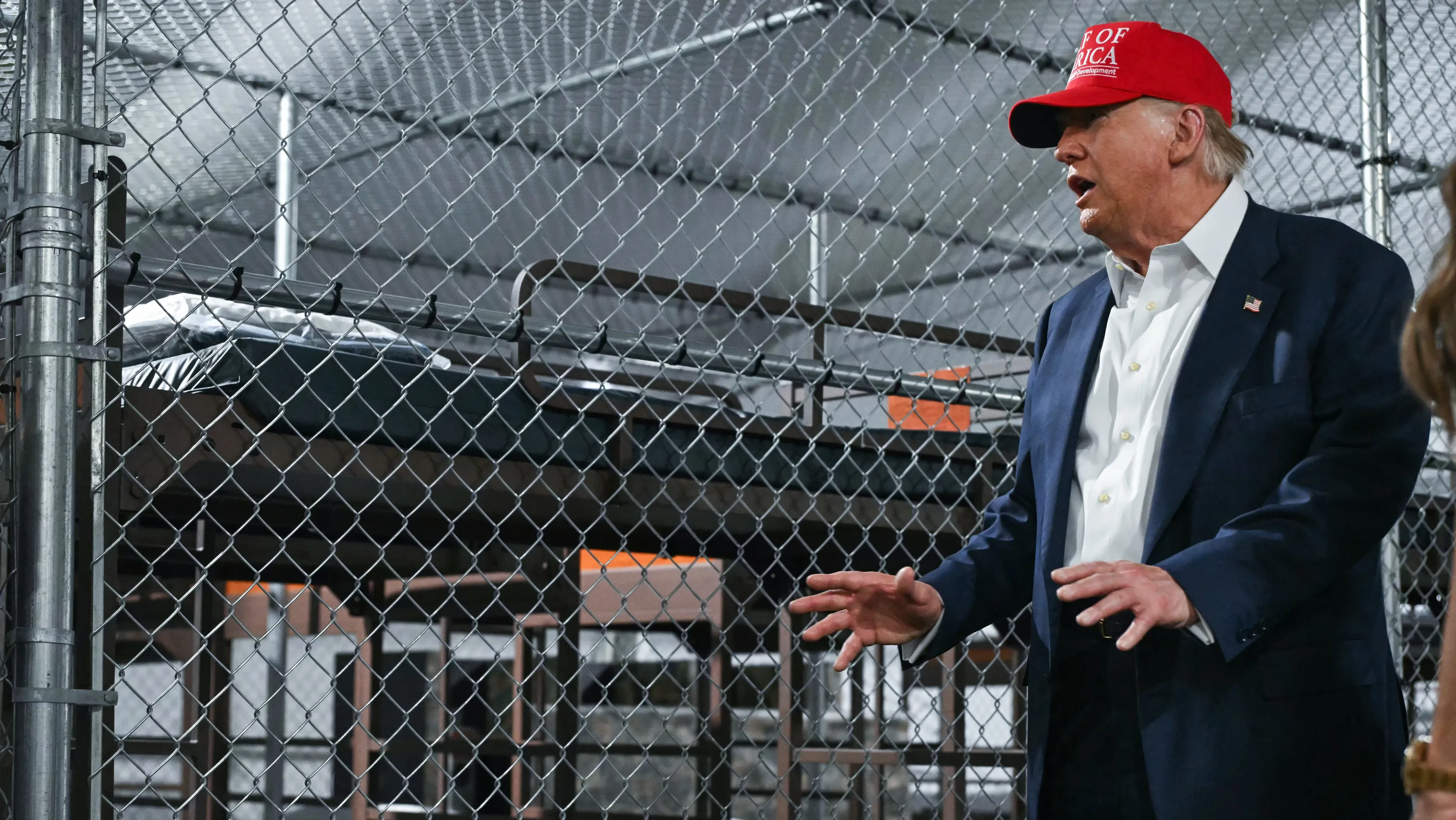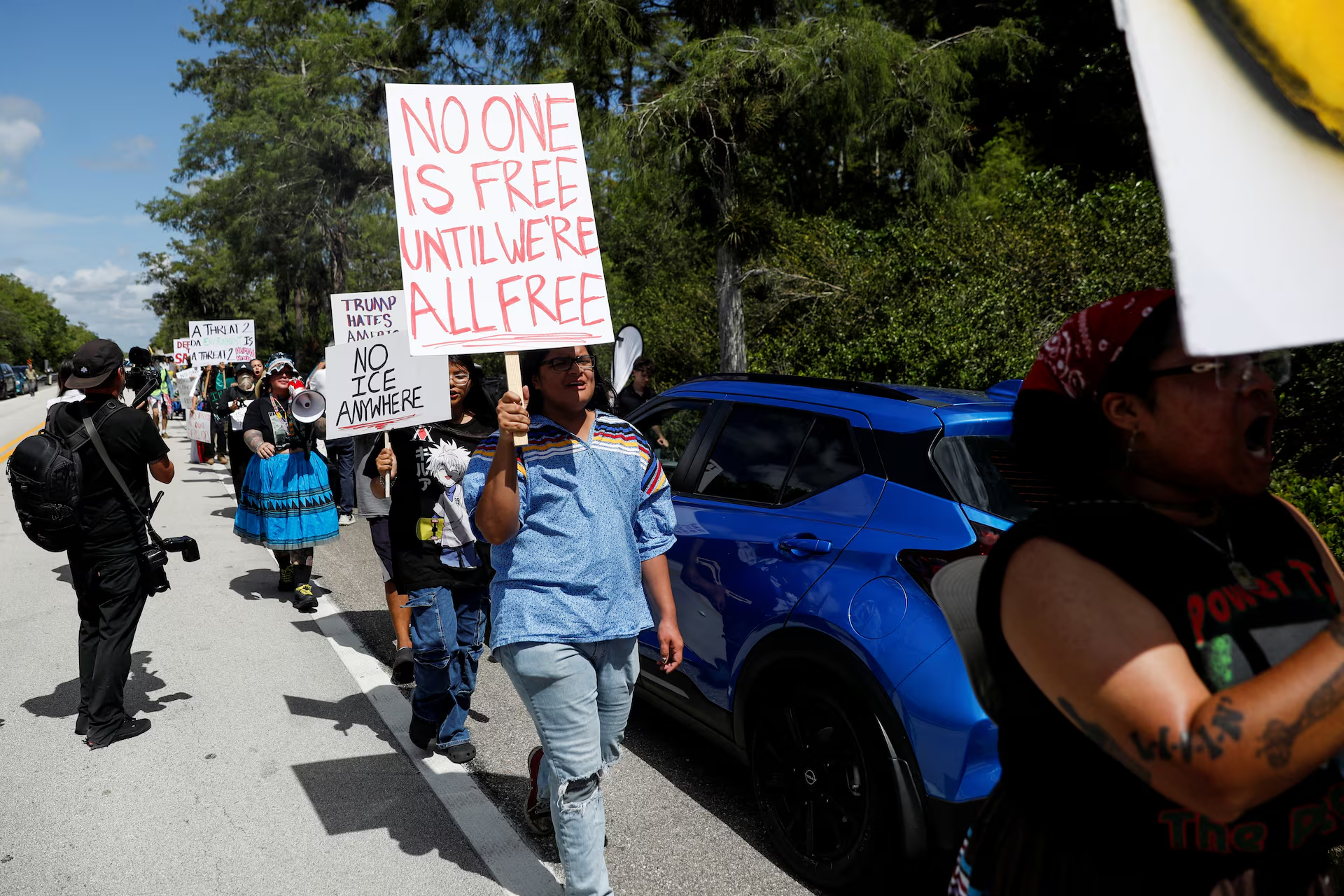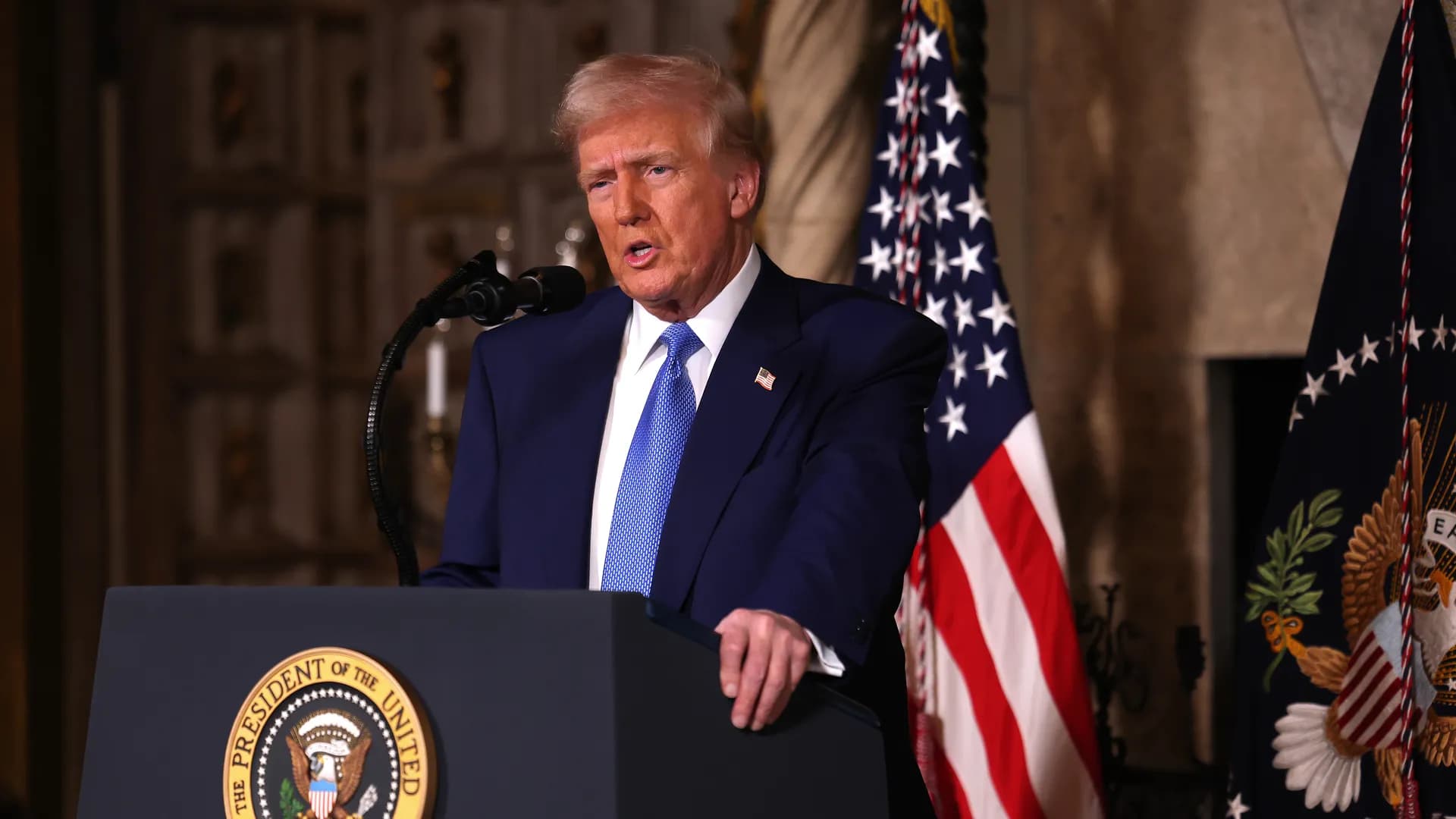President Donald Trump"s recent press conference left many questioning not just his grasp on immigration policy but also his mental acuity. After visiting a newly established detention center for migrants in Florida, which he dubbed "Alligator Alcatraz," Trump’s bewildering remarks about his own status during a Q&A session raised alarm bells, igniting conversations about his mental health and the broader implications for immigration policy.
Trump"s Confusing Comments on Detainees
During the press conference, Trump was asked about the expected duration of detainees" stays at the facility, which is set to hold 3,000 migrants. Instead of providing a coherent response, Trump’s rambling answer veered off-topic, prompting speculation that he may have mistakenly referred to himself as a "detainee." This moment, captured on video and quickly circulating on social media, has sparked fears of cognitive decline, with commentators suggesting that the president"s mental fitness is in question.
The Reality of Detention Facilities
While Trump"s focus on the facility"s capacity and its purported security measures—like surrounding alligators and pythons—may have seemed theatrical, the reality of such detention centers is grim. These facilities represent a stark departure from humane immigration practices and reflect an increasingly punitive approach to immigration enforcement. According to a report on the illegal immigration crisis, such policies not only burden American taxpayers but also harm vulnerable communities by diverting essential resources away from those who need them most according to the Trump White House.

Trump visits "Alligator Alcatraz" immigration detention center
Human Rights Violations in Detention Centers
As I have reported extensively, facilities like the one in Florida have become hotspots for human rights abuses. Detainees often face overcrowding, inadequate medical care, and lack of access to legal representation. The designation of migrants as "menacing" and "vicious" only serves to dehumanize individuals who are fleeing violence, persecution, and poverty. This rhetoric reinforces harmful stereotypes and perpetuates a culture of fear, undermining the fundamental values of compassion and justice that should guide our immigration system.
The Broader Implications of Trump"s Comments
Trump"s comments during the press conference not only reflect a concerning detachment from reality but also highlight the administration"s failure to address the root causes of migration. By framing migrants as threats, Trump distracts from the need for comprehensive immigration reform that addresses the systemic issues driving individuals to seek asylum in the United States. As reported by Politico, the focus should be on creating pathways for legal entry and ensuring that asylum seekers receive the protections they deserve.

In pictures: Trump visits "Alligator Alcatraz" - July 1, 2025 ...
Public Response to Trump"s Mental Fitness
The public reaction to Trump"s mental fitness has been telling. Many social media users expressed concern that the president is experiencing cognitive decline, with comments ranging from disbelief to outright alarm. One user noted, "This isn"t a gaffe. It"s cognitive collapse on live TV. Where"s the media?" This sentiment resonates deeply among those who prioritize accountability in leadership, especially on issues as critical as immigration policy, where the stakes are lives and futures.
The implications of a president exhibiting such confusion during discussions of immigration policy cannot be overstated. As the daughter of immigrants, I see firsthand the challenges faced by those navigating a system that is increasingly hostile and complex. The fear and uncertainty that permeate the migrant experience are exacerbated when the highest office in the land appears to lack clarity and coherence on these issues.
As we watch the unfolding drama of Trump"s presidency, it is crucial to remain vigilant about the policies that affect the most vulnerable among us. The rise of detention centers symbolizes a broader trend toward criminalizing migration rather than addressing the humanitarian crises that drive individuals to our borders. It is imperative that we advocate for reform, not just for the sake of policy, but for the sake of human dignity and justice.

![[Video] Federal officers deploy sting balls and flash grenades at Whipple Building](/_next/image?url=%2Fapi%2Fimage%2Fthumbnails%2Fthumbnail-1768340555229-vhfcc-thumbnail.jpg&w=3840&q=75)
![[Video] Crowd-control weapons used in Minneapolis as anti-ICE protesters attack police vehicle](/_next/image?url=%2Fapi%2Fimage%2Fthumbnails%2Fthumbnail-1768336302231-akxf7s-thumbnail.jpg&w=3840&q=75)

![[Video] Protests erupt in Minneapolis after ICE detains teenager, multiple arrests made](/_next/image?url=%2Fapi%2Fimage%2Fthumbnails%2Fthumbnail-1768331835371-z9ylqg-thumbnail.jpg&w=3840&q=75)


![[Video] Gunfire between Iraqi security forces and Sadr militias in Baghdad](/_next/image?url=%2Fapi%2Fimage%2Fthumbnails%2Fthumbnail-1768343508874-4redb-thumbnail.jpg&w=3840&q=75)
